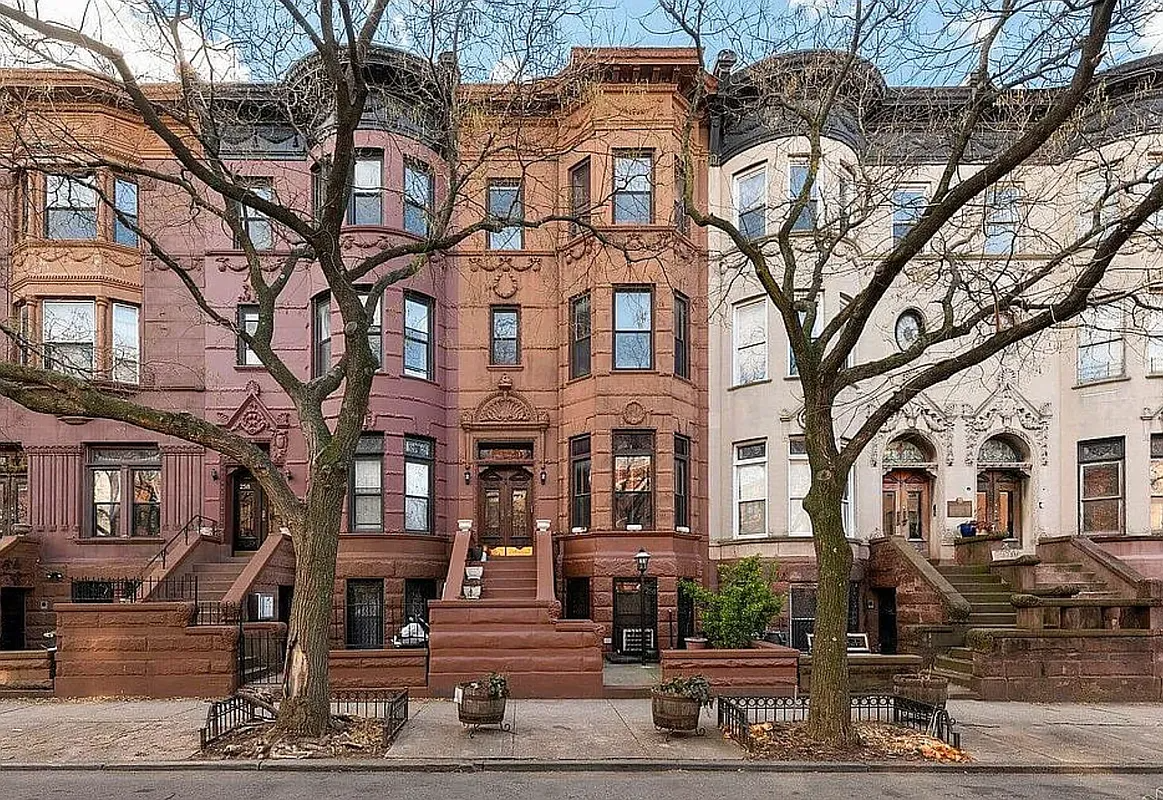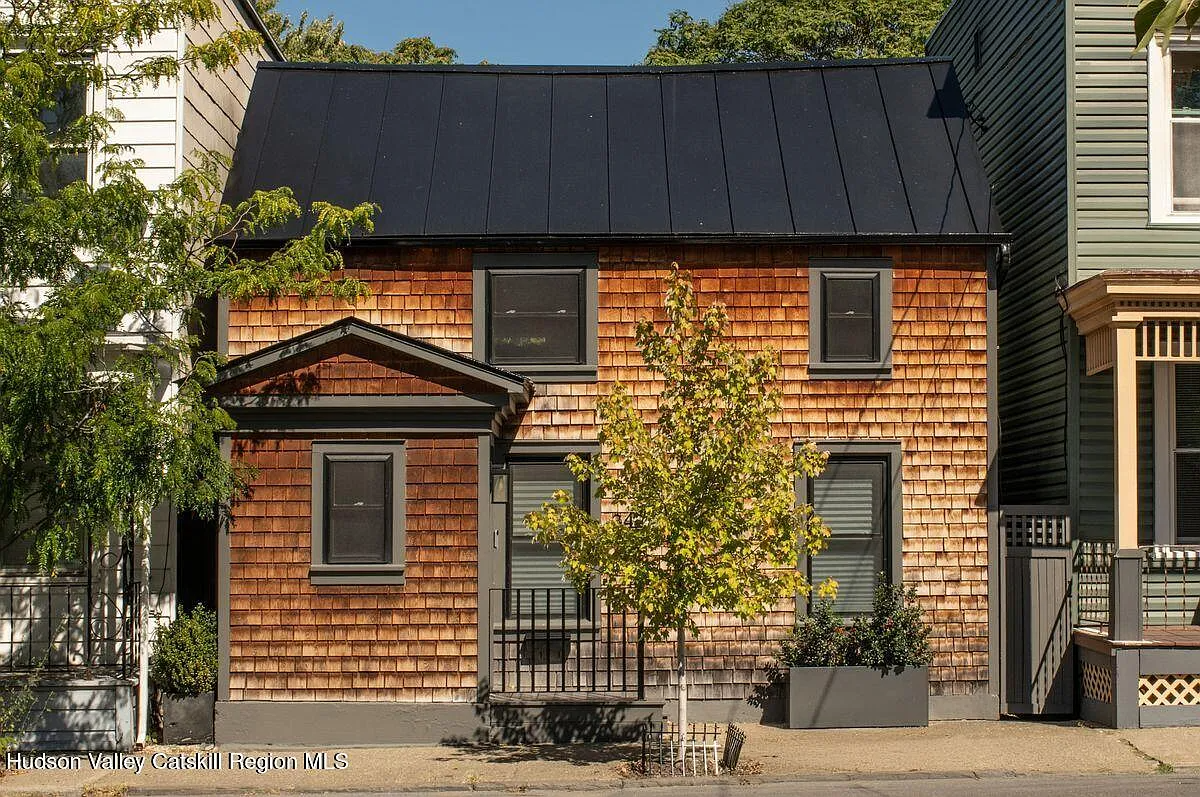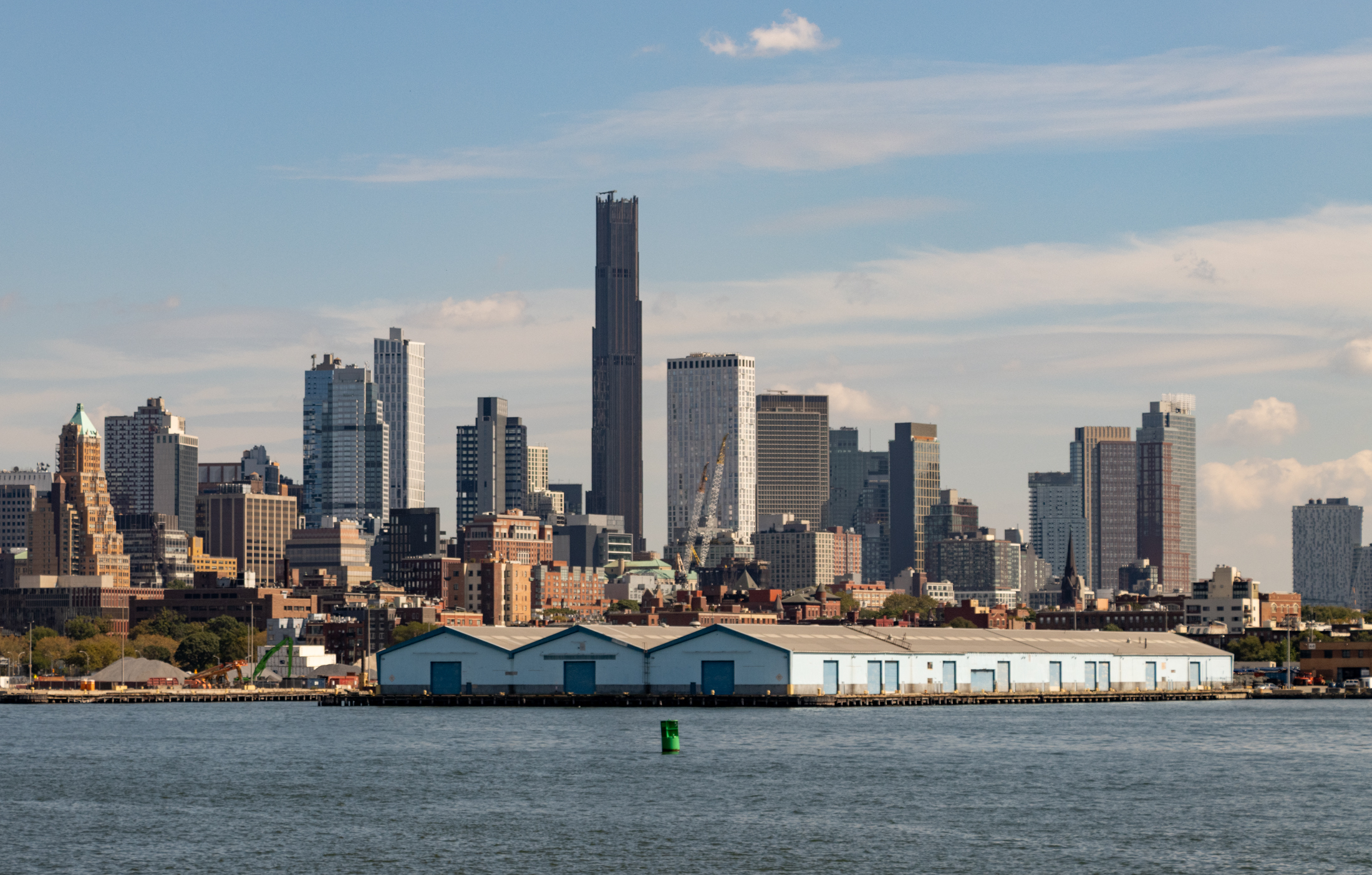Manhattan Market Frozen
The news from across the East River ain’t good: Prices and sales volume are both down, and it’s taking a lot longer for apartments to sell; inventory is up 34 percent over last year. That’s the bottom line of the First Quarter Report from Douglas Elliman and Halstead released this morning. The number of co-op…

 The news from across the East River ain’t good: Prices and sales volume are both down, and it’s taking a lot longer for apartments to sell; inventory is up 34 percent over last year. That’s the bottom line of the First Quarter Report from Douglas Elliman and Halstead released this morning. The number of co-op and condo closings fell 58 percent year-over-year and prices dropped 11 percent. (Co-op prices fared worse than condos, though that was likely skewed by fewer eight-figure co-op deals; in fact, the number of $10 million deals fell 87 percent.) Consumer confidence is the killer, said Dottie Herman, president of the Prudential Douglas Elliman brokerage firm. People are scared. They have never seen anything like this. Corcoran head Pam Liebman predicted that prices will fall further as sales volume picks up, which is good—it’s the only way for the market to find its bottom. How do you think the Brooklyn market is faring compared to this?
The news from across the East River ain’t good: Prices and sales volume are both down, and it’s taking a lot longer for apartments to sell; inventory is up 34 percent over last year. That’s the bottom line of the First Quarter Report from Douglas Elliman and Halstead released this morning. The number of co-op and condo closings fell 58 percent year-over-year and prices dropped 11 percent. (Co-op prices fared worse than condos, though that was likely skewed by fewer eight-figure co-op deals; in fact, the number of $10 million deals fell 87 percent.) Consumer confidence is the killer, said Dottie Herman, president of the Prudential Douglas Elliman brokerage firm. People are scared. They have never seen anything like this. Corcoran head Pam Liebman predicted that prices will fall further as sales volume picks up, which is good—it’s the only way for the market to find its bottom. How do you think the Brooklyn market is faring compared to this?
Apartments Sell for Less if They Are Sold at All [NY Times]
Crisis Hits Home: Manhattan Massacre [NY Post]
Photo by Rob Young





sam & turbur6: I think you guys are way-off the mark with your pro-suburb/pro-medium size city predictions…
Energy efficient cars are only efficient in-terms of mileage: they still create huge amounts of pollution & consume huge amounts of energy when you factor-in their production, the amount of raw land converted to highways, streets, parking lots & ever-wider-sprawling McMansion communities. They are at best a stop-gap to get us off the totally unsustainable, post-WWII GI Bill-funded suburban development pattern – which, not coincidentally, is at the core of the current housing collapse.
And just think for, oh, say 30 seconds about your boosterism of Portland, or better yet, Buffalo: if you start pumping people into medium-size cities, what do you get? Big cities – except they are big cities without the big city infrastructure & social/political networks already in-place. Perhaps you think the federal bailout money could be better spent building a from-scratch light rail system in Buffalo rather than repairing parts of the NYC subway?
I cold go on, but the bottom-line is that unless you are predicting a Mad Max-style social breakdown, dense cities like NYC are the most sustainable models for future growth.
11217 — NYC went from 4.1% to 8.1% in the same period… and a lot of these were finance jobs, that I don’t think are coming back to NYC necessarily. This was experienced after 9/11 too… a lot of firms found homes elsewhere. Of course, maintained a *presence* in NYC, but the bulk of their operations went to smaller cities.
Are you buying corporate bond funds or are you picking and choosing and running an undeversified portfolio. The runup in corporate bond prices as the appetitie for risk increased is largely over. With any increase in risk appetite and with interest rates on the rise overall, equities will beat bonds. And Emerging Markets will be the best. That’s just the way it works.
My LTV is 45%. The house will be paid off in 15 years at the latest. There’s no sense in paying off a 5-6% fixed rate mortgage.
Tyburg:
Since you brought up Portland (my favorite U.S. city outside NYC) I wanted to show you this article which was in the Times last week. I believe you are correct in the sense that smaller U.S. cities will *probably* start to thrive in the coming years, but I also firmly believe that NYC will continue to lead the pack. The density of intellectual minds here is what makes NYC so special and attractive to many.
Here’s a highlight of the article and the full article…notice how unemployment in Portland has absolutely SPIRALLED in the last year…going from 4.8% in 2007 to 9.8% now…it’s going to take a MUCH longer time for these smaller cities to regain jobs than it will take for NYC to do so:
****
Portland, a metropolitan area of 2.2 million people, affords an ideal window onto the spiral of fear and diminished expectations assailing the economy. The area has long attracted investment and talented minds with its curbs on urban sprawl, thriving culinary scene and life in proximity to the Pacific Coast and the snow-capped peaks of the Cascades. In good times, Portland tends to grow vigorously, elevated by companies like the computer chip maker Intel — which employs 15,000 people in the area — and the athletic clothing giant Nike.
But in recent months, Portland has devolved into a symbol of much that is wrong. Housing prices have fallen more than 14 percent since May 2007, according to the S.& P./Case-Shiller index. Foreclosures more than tripled last year, according to RealtyTrac. The unemployment rate for the metro area surged from 4.8 percent at the end of 2007 to 9.8 percent in January 2009, according to the Labor Department.
http://www.nytimes.com/2009/03/27/business/economy/27portland.html?_r=1&scp=1&sq=portland%202009&st=cse
brickoven: I am short Brooklyn real estate (sold in ’07 and now rent) and long the S&P. S&P may go down near term and I have no idea how much, but I will keep buying on a regular schedule for the duration. I expect to do very well in equities over the coming years.
A bubble is developing in most “inflation havens” that retail investors have access to. Gold is becoming bubblicious. Grandmas in the midwest responding to ads on TV that scare them about a level of inflation that may or may not ever arrive and convince them to buy gold? That investment has pretty much jumped the shark.
“chicken…my position all along was not that house prices were going to go up or even remain flat. My only position was that Brooklyn brownstones would not come off in price as much as 1. Any other part of the country and 2. NYC coops and condos. I’m still believing in a 10-15% or so reduction in brownstone prices from the top, which I believe was essentially 4Q2007.
I hope that clarifies my position on Team Bull.
Posted by: daveinbedstuy at April 2, 2009 9:56 AM”
That’s fine and a position that I believe you have mentioned before. My post was in response to your point towards the top of the thread, specifically;
“The stock market has already begun to discount the turn in the economy. It is THE leading indicator.”
It is true that the market does move ahead of the economy but it can also represent a false dawn – something we have seen several times in Japan.
Yes, yesterday’s SAAR number was better than expected – a lot to do with expectations having been so brow-beaten up to that point – but let’s call a spade a spade. 9.9m is still plumbing the depths last seen in the early 80’s. Given the recent incentives available, a small bounce is pretty pathetic in the context of the economy.
Notwithstanding that the seasonal adjustment formula is a suspect one, we also do not have any indication of the product mix. ie unit sales may have doubled in reaction to prices halving but it doesn’t mean it was a good result.
I think cities that have thought about the future will grown first… like Portland, OR. They made a great investment in the TriMet system that is ready to grow, including (probably most importantly) created a inter-municipality structure that will make future growth and expansion easy — unlike the dysfunctional agencies we have around here (MTA, PortAuthority, etc.)
And because it’s already happening, cities that used to be bigger and were really great in the past will grow again. These are places that used to be manufacturing-based, but have experienced major decline… Buffalo, Worcester, Providence, and cities in Pennsylvania. These cities have the “bones” and history to make it work.
Daveinbed, treasuries are trading at a premium for good reason. I was talking about corporate bonds though. You keep buying youre little stocks and thinking the bottom is in. There is no bubble in the bond market, in fact it is priced as if the S and P will trade much lower soon. Brooklyn prices are in real trouble. Who is going to move into all the new buildings in Williamsburg and DT? As people lose tenants in there brownstones and go into foreclosure as there ARMs explode who will live in the Brownstones? My guess is that the only area in Brooklyn that is safe is Brooklyn heights. Are you an owner? what year did you buy?
When house prices were ludicrously high (okay, even ludicrously higher than they are now), it was a Bad Thing because ordinary working folks were priced out of the housing market. Now that prices have become Somewhat Less Ludicrous, the wailing intensifies. Why can’t everyone just cheer up and applaud all the new Affordable Housing?